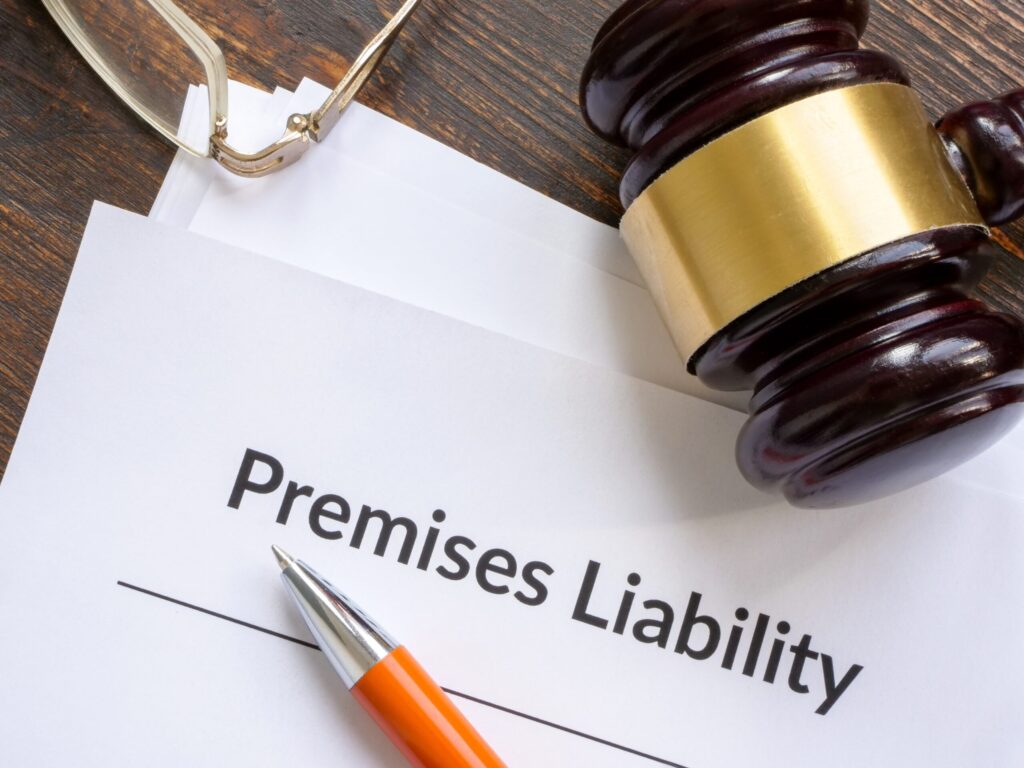Table of Contents
Understanding Premises Liability: A Comprehensive Guide to Your Rights and Legal Recourse
Premises liability is a crucial aspect of personal injury law that many people may not fully understand until they’ve been affected by it. Whether it’s slipping on a wet floor in a grocery store, tripping over uneven pavement outside an apartment building, or suffering an injury at a public park, the legal responsibility for maintaining a safe environment falls on property owners and managers. When accidents happen due to negligence, premises liability lawyers play a critical role in helping victims navigate the complexities of these claims and secure the compensation they deserve.
In this comprehensive guide, we’ll break down the key components of premises liability, explain your legal rights as a visitor or guest, and discuss how premises liability lawyers can assist you in building a strong case.
What Is Premises Liability?
Premises liability refers to a legal doctrine that holds property owners, occupiers, or managers responsible for injuries that occur on their property due to hazardous conditions. In simple terms, if you are injured on someone else’s property because of their negligence, you may be entitled to compensation under premises liability law.
Premises liability claims typically arise from accidents like:
- Slip and fall incidents: A person trips, slips, or falls due to unsafe surfaces (e.g., wet floors, icy sidewalks, loose carpets).
- Falling objects: Objects that are improperly stored or placed fall and cause injury.
- Poor maintenance: Hazardous conditions due to neglected property upkeep, such as broken stairs or malfunctioning escalators.
- Inadequate lighting: Poorly lit areas that increase the risk of accidents, such as dark stairwells or parking lots.
- Inadequate security: When a lack of security measures leads to injuries, including assaults or robberies.
- Fires or explosions: Injuries caused by fire hazards or improperly maintained gas or electrical systems.
The basis of a premises liability claim is that the property owner or manager failed to take reasonable steps to prevent injuries. This can include things like not cleaning up spills, failing to repair broken infrastructure, or not providing adequate warning signs.
Key Legal Concepts in Premises Liability Cases
Premises liability law has several foundational concepts that impact the outcome of a case. These include:
1. Duty of Care
Property owners owe a legal duty to keep their premises reasonably safe for visitors. The extent of this duty depends on the type of visitor. The law generally recognizes three categories of visitors, each of which is owed a different level of care:
- Invitees: People who are invited onto the property for business or public purposes (e.g., customers at a store). Invitees are owed the highest level of care, meaning property owners must regularly inspect the premises for hazards and fix or warn about them.
- Licensees: These are social guests or others who enter the property for non-business reasons (e.g., friends visiting a home). Property owners owe them a duty to fix known hazards or warn them of any dangerous conditions that may not be obvious.
- Trespassers: People who enter a property without permission are generally owed the least duty of care. However, there are exceptions, especially if the property owner knows that trespassing frequently occurs or if the trespasser is a child.
2. Notice of Hazardous Conditions
For a premises liability claim to be successful, it must be proven that the property owner or occupier had notice of the hazardous condition and failed to act. Notice can be:
- Actual notice: When the owner or occupier knew about the dangerous condition (e.g., they were told about a broken step or leaking pipe but did nothing).
- Constructive notice: When the hazard existed for a long enough time that the owner or occupier should have known about it through reasonable diligence (e.g., a spill that was not cleaned up for several hours).
3. Comparative Negligence
In many cases, the injured party’s actions may have contributed to the accident. For example, if someone was texting while walking and failed to notice a marked wet floor sign, they may bear partial responsibility for the injury. In such situations, the legal doctrine of comparative negligence comes into play. Courts may reduce the compensation awarded based on the injured party’s percentage of fault.
4. Open and Obvious Doctrine
Property owners can sometimes avoid liability if the hazard is “open and obvious,” meaning that a reasonable person would have noticed and avoided it. For instance, a large pothole visible in daylight may not result in liability if the injured person fails to notice it despite the obvious danger.
Common Types of Premises Liability Claims
Different types of properties come with varying risks, and the nature of the property often influences the type of premises liability claims that arise. Let’s explore some of the most common premises liability cases:
1. Residential Property Claims
Injuries on residential properties, such as homes, apartments, or condominiums, are quite common. Homeowners, landlords, or property managers can be held liable if a tenant, visitor, or even a contractor is injured due to unsafe conditions like:
- Slippery sidewalks or driveways (especially in winter)
- Poor lighting in stairwells or hallways
- Broken or missing handrails
- Faulty wiring leading to electrocution or fires
Landlords and property managers have a responsibility to maintain safe common areas, such as lobbies, elevators, and recreational areas. Failing to fix known hazards or violating building codes can result in liability.
2. Commercial Property Claims
Commercial properties, including stores, restaurants, offices, and malls, often see a higher volume of visitors, increasing the risk of accidents. Business owners and operators are held to a high standard of care, and typical claims include:
- Slip and fall accidents in retail stores due to wet floors spilled merchandise, or uneven surfaces
- Injuries caused by inadequate security measures, such as poorly lit parking lots or lack of surveillance in high-crime areas
- Accidents caused by falling merchandise or poorly maintained shelving
3. Public Property Claims
Public property, such as parks, sidewalks, and government buildings, are not immune to premises liability claims. When a person is injured on public property due to poor maintenance or unsafe conditions, the government entity responsible for maintaining the property may be held accountable. However, claims against the government often involve additional legal hurdles, such as stricter notice requirements and shorter deadlines for filing lawsuits.
4. Recreational Facilities and Amusement Parks
Recreational areas, including playgrounds, swimming pools, gyms, and amusement parks, carry inherent risks. Owners and operators of these facilities must ensure that equipment is properly maintained and that hazards like slippery pool decks or faulty playground equipment are addressed promptly. Injuries at amusement parks often lead to complex premises liability claims, as these parks must protect patrons from foreseeable dangers.
Common Defenses in Premises Liability Cases
Property owners facing premises liability claims often employ various defenses to limit or eliminate their liability. Some common defenses include:
1. Lack of Notice
A property owner may argue that they did not know, nor could they have reasonably known, about the dangerous condition in time to prevent the accident. For instance, if someone spills a drink in a grocery store and a customer slips on it moments later, the store may claim that they did not have sufficient notice of the spill to clean it up.
2. Open and Obvious Danger
As mentioned earlier, property owners can defend themselves by arguing that the hazard was “open and obvious” and that any reasonable person should have recognized and avoided it. However, this defense may not apply in situations where the hazard is difficult to see or in cases involving young children who may not appreciate the danger.
3. Comparative Negligence
Property owners may also argue that the injured person was partially or fully responsible for the accident. For example, if someone slips while running in a store where there are clear warning signs, the property owner might claim that the person’s carelessness contributed to the injury. In such cases, compensation may be reduced based on the injured party’s percentage of fault.
4. Assumption of Risk
This defense is used when the injured party voluntarily engages in an activity that carries inherent risks, such as playing sports or participating in other recreational activities. By engaging in the activity, the person may have assumed the risk of injury, which can limit the property owner’s liability.
How Premises Liability Lawyers Help You Navigate Complex Claims
Premises liability cases can be legally complex, as they often require proving that the property owner was negligent and that their negligence directly caused your injury. A premises liability lawyer can help in several ways:
Negotiating with insurance companies: Property owners and their insurers may try to offer settlements that undervalue your injuries. A premises liability lawyer negotiates on your behalf to secure fair compensation for your medical expenses, lost wages, pain and suffering, and other damages.
Gathering evidence: Lawyers will collect important evidence, such as photos of the hazardous condition, security footage, witness statements, and accident reports, to build a strong case.
Determining liability: In some cases, more than one party may be responsible for the dangerous condition. For instance, a property owner and a third-party maintenance company could share liability. A lawyer will identify all responsible parties and pursue claims against each one.
Navigating legal procedures: Premises liability claims involve legal deadlines and procedures that can be difficult to manage without professional help. A lawyer ensures that your case is filed on time and that all procedural requirements are met.

What types of accidents are considered premises liability cases?
Premises liability cases include accidents such as slip and falls, falling objects, poor building maintenance, inadequate security, and fires or chemical hazards.
Who can be held responsible in a premises liability case?
Responsibility can fall on property owners, occupiers, property managers, landlords, tenants, contractors, and even government entities for accidents on public property.
How can a premises liability lawyer help me?
Premises liability lawyers can assist by investigating the accident, gathering evidence, determining fault, and helping you pursue compensation for medical expenses, lost wages, and other damages.
Do all injuries on someone else’s property qualify as premises liability cases?
Not necessarily. The injury must be caused by an unsafe or poorly maintained condition, and the property owner or occupier must have failed in their duty to maintain a safe environment.
How long do I have to file a premises liability claim?
The time limit for filing a premises liability claim depends on the laws in your jurisdiction. In many places, there is a statute of limitations ranging from one to three years from the date of the injury. It’s important to consult a lawyer as soon as possible to avoid missing important deadlines.
- Contract Law Across Countries (Canada and United States)
- Cross Border Services (United States and Canada)
- SK Legal – Contingency Engagements for 100% Success – Serving all of British Columbia and Alberta
- Navigating Personal Injury Claims with SK Legal as Your Trusted Lawyer in Alberta
- SK Legal: Assisting Tenants with Landlord/Tenant Disputes in Alberta and British Columbia, Canada

